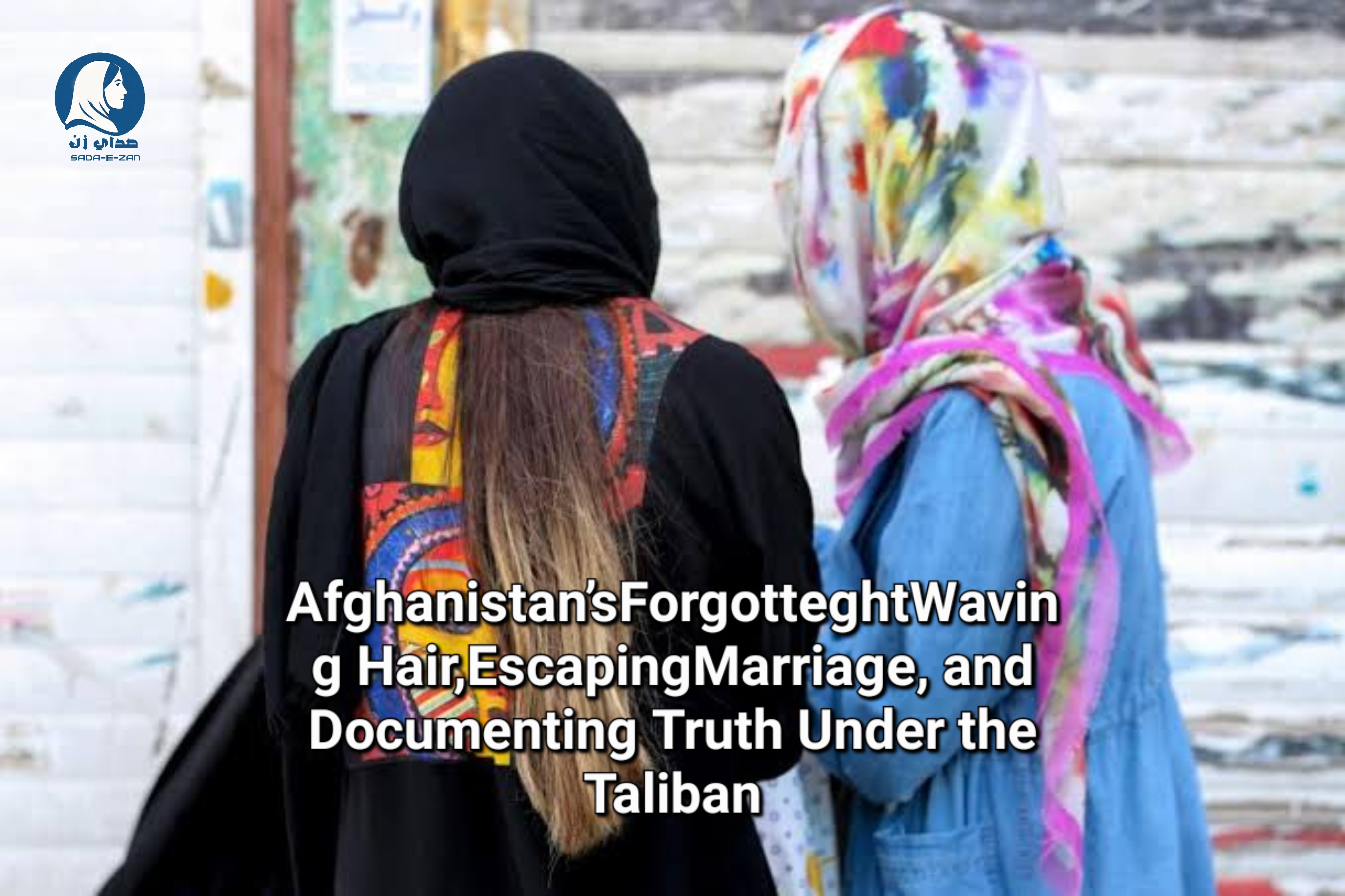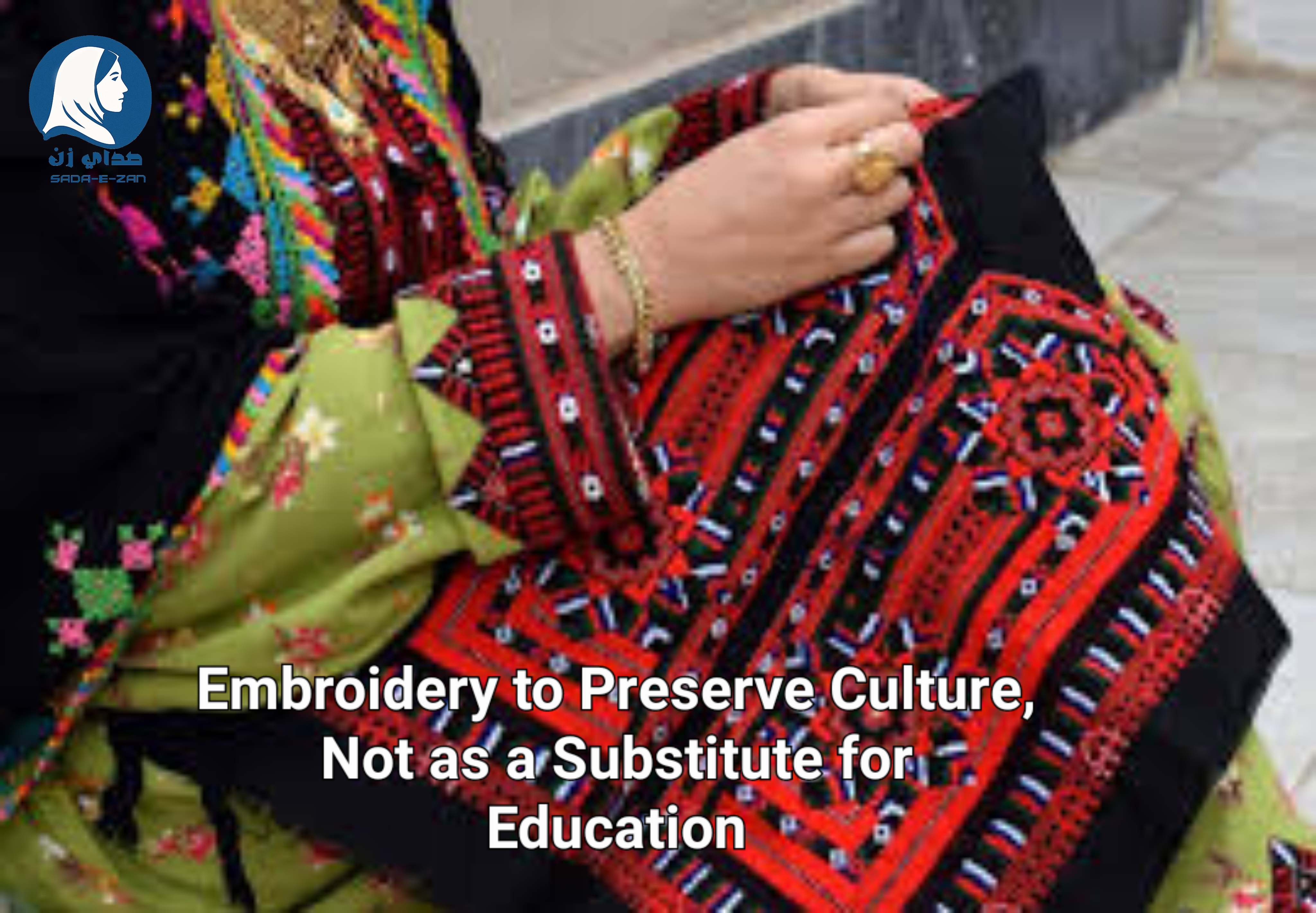
Share:
By Bahara Sediq
Herat, Afghanistan — Under Taliban rule, Afghan women are forced into silence, poverty, and invisibility. While international headlines move on, the daily reality for millions of Afghan girls and women grows darker. This report brings to light the intertwined stories of three young women—Sara, Mahnaz, and Zainab—who embody the resilience, fear, and resistance shaping the hidden lives of Afghanistan’s daughters.
Sara: Weaving Hair for Bread
Sixteen-year-old Sara works late into the night beside her mother in a modest home in Herat, braiding synthetic hair extensions by hand. With no machinery, no training, and no guaranteed sales, their survival depends on each knot they tie.
"Sometimes I feel nothing makes me happy anymore," she says quietly. "Even when we earn some money, it doesn't bring joy—just survival."
Sara’s hands are raw, her back aching, but she continues. Her mother’s health is deteriorating, and if she stops, the work—and their only income—stops too. Recently, the Taliban’s Ministry for the Promotion of Virtue and Prevention of Vice raided shops in Herat, confiscating 400 kilograms of women’s hair extensions, declaring them "un-Islamic." The crackdown directly threatened Sara’s already fragile livelihood.
But beyond the financial pressure lies another fear: forced marriage. "If things don’t change, I may be married off in the next two years," she says, her voice heavy with dread. "I’m not ready. I just want to live."
Mahnaz: A Runaway Bride Before the Wedding
Fifteen-year-old Mahnaz fled her home in Injil district after learning that her father had arranged for her to marry a 45-year-old man. Her dowry would help pay off family debts. Instead of surrendering, she slipped out in the night and took refuge in a friend’s home.
"My father said if I refused, I was no longer his daughter," Mahnaz says. "I wasn’t just afraid of the man—I was terrified of losing control over my own future."
Now she lives in hiding. Without legal documents or family support, she cannot attend school or work. Yet even in this limbo, she clings to the hope of someday continuing her education.
"I am not a threat, not a burden," she says. "I just want the right to choose—for once in my life."
Zainab: Capturing Truth Through a Broken Lens
Zainab, 23, was once a rising journalist in Kabul. After the Taliban took over, her media outlet was shut down. She now works underground, documenting the struggles of Afghan women with nothing but a damaged camera and an old smartphone.
"I’ve been followed, threatened, warned to stop," she says. "But stopping means abandoning the truth."
Zainab’s work now exists in fragments—anonymous posts, encrypted audio recordings, and blurry photos smuggled out to local and foreign journalists. Her mission, however, remains clear: to ensure Afghan women are seen, even when they are silenced.
"We are not shadows," she says defiantly. "We are women. Don’t fear our presence—fear your ignorance of it."
A Cry for Recognition
Through different paths, Sara, Mahnaz, and Zainab reflect one reality: in Afghanistan, being a woman today is a daily act of resistance. Whether braiding synthetic hair to survive, fleeing a forced marriage, or capturing truth through trembling hands, these young women are not passive victims—they are active witnesses of a shattered nation.
They don’t ask for charity. They ask for a chance—to live, to learn, and to be heard.


